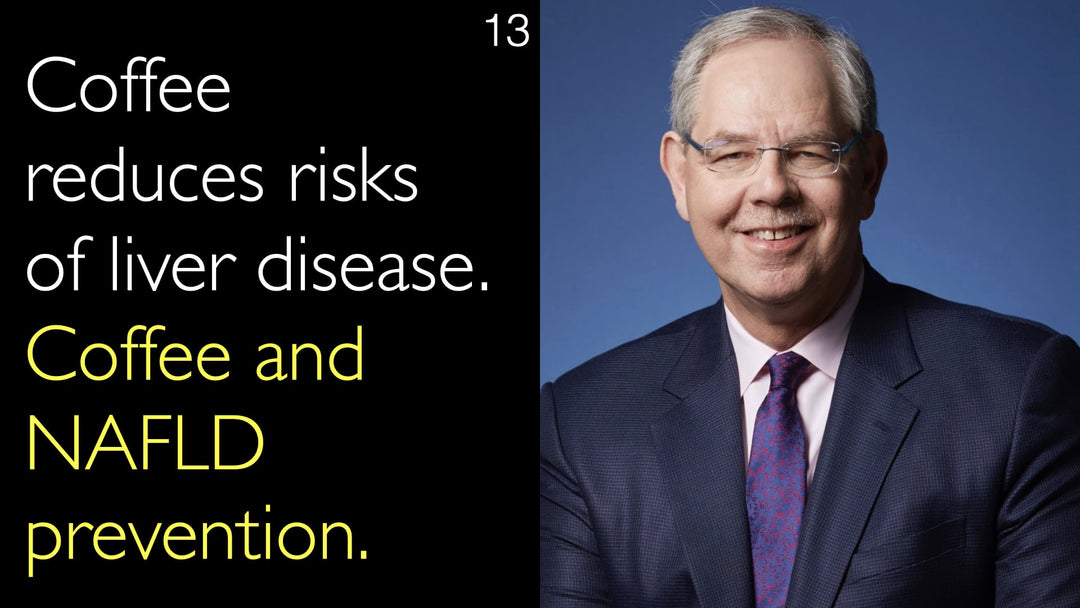Leading expert in integrative medicine, Dr. Kevin Barrows, MD, explains how to select high-quality dietary supplements by emphasizing evidence-based options like fish oil and St. John's Wort, identifying reliable brands through independent testing, checking clinical trial brands, and verifying Good Manufacturing Practices certification to avoid contamination and ensure capsule dissolution.
Evidence-Based Guide to Choosing Safe and Effective Dietary Supplements
Jump To Section
- Evidence-Based Supplements That Work
- The Supplement Quality Challenge
- Independent Testing for Purity & Potency
- 3 Ways to Verify Supplement Quality
- Liver Toxicity and Safety Concerns
- Dietary Supplement Regulatory Landscape
- Practical Supplement Selection Strategy
- Full Transcript
Evidence-Based Supplements That Work
Dr. Kevin Barrows, MD, highlights that not all dietary supplements are equally effective. As explained during his discussion with Dr. Anton Titov, MD, specific supplements have robust scientific backing. Fish oil demonstrates proven benefits for high triglycerides, while St. John's Wort shows comparable efficacy to pharmaceutical antidepressants for depression, supported by dozens of randomized trials and a Cochrane review.
Dr. Barrows stresses prioritizing supplements with established evidence, cautioning that many lack clinical validation. "Some dietary supplements are indicated, but for others, there's simply no evidence-based data," he told Dr. Anton Titov, MD.
The Supplement Quality Challenge
Selecting a trustworthy brand presents significant hurdles. "When you want to buy St. John's Wort, how do you know which of the hundred varieties to choose?" asked Dr. Anton Titov, MD. Dr. Barrows confirmed the critical issue: supplements lack pharmaceutical-grade regulation, creating variability in active ingredients, contaminants, and bioavailability.
He emphasized that even evidence-backed supplements can fail if capsules don't dissolve properly or contain undeclared toxins. This unpredictability requires extra diligence from consumers and healthcare providers.
Independent Testing for Purity & Potency
Third-party testing services provide the gold standard for quality verification. Dr. Kevin Barrows, MD, recommends independent labs that purchase supplements anonymously and test for:
- Potency: Does the product contain the advertised amount of active ingredient?
- Purity: Is it free from contaminants like lead or cadmium?
- Dissolution: Does the capsule break down properly for absorption?
Dr. Barrows advised Dr. Anton Titov, MD, that these tests reveal which brands consistently meet standards, offering objective quality assurance unavailable from labels alone.
3 Ways to Verify Supplement Quality
Dr. Kevin Barrows, MD, outlined three practical methods to identify high-quality supplements during his conversation with Dr. Anton Titov, MD:
1. Independent Lab Reports: Consult subscriber-based websites publishing third-party test results.
2. Clinical Trial Brands: Identify brands used in successful studies on the supplement.
3. Label Indicators: Check for lot numbers, expiration dates, and Good Manufacturing Practices (GMP) certification. "No lot number or expiration date suggests poor quality control," warned Dr. Barrows.
Liver Toxicity and Safety Concerns
Dr. Barrows acknowledged rare but serious risks, including hepatotoxicity requiring liver transplantation. "There are solid case reports where supplements caused liver damage," he stated to Dr. Anton Titov, MD, referencing incidents reported in sources like the New York Times.
While some events may be coincidental, contaminants or adulterants in supplements pose real dangers. Dr. Barrows emphasized rigorous quality checks as the primary defense against toxicity.
Dietary Supplement Regulatory Landscape
Unlike pharmaceuticals, the supplement industry operates under minimal oversight. Dr. Kevin Barrows, MD, explained to Dr. Anton Titov, MD, that the FDA doesn't pre-approve supplements for safety or efficacy. Public resistance to tighter regulations maintains this "wild west" environment despite known risks.
Though GMP certification exists, compliance isn't universally enforced. Dr. Barrows noted only a slow trend toward increased regulation, with major changes unlikely without public outcry following safety crises.
Practical Supplement Selection Strategy
Dr. Kevin Barrows, MD, recommends this action plan for consumers:
- Choose only evidence-based supplements for specific conditions.
- Verify brands via third-party testing reports or clinical trial sources.
- Reject products without lot numbers, expiration dates, or GMP certification.
- Consult healthcare providers about potential interactions and liver health monitoring.
"It's an extra hurdle," Dr. Barrows told Dr. Anton Titov, MD, "but essential for safe, effective integrative care."
Full Transcript
Dr. Kevin Barrows, MD: - When we say dietary supplements - that encompasses a lot of different things. Some of food supplements is not evidence-based, and some supplements is evidence-based. When we talked earlier in this interview - there are certain indications - fish oil works well for hypertriglyceridemia. St. John's Wort is a great example of an effective therapy for depression. We have a few dozen randomized control trials on that. We have a Cochrane review concluding it's equally effective to pharmaceutical anti-depressants, with fewer side effects. So some dietary supplements are indicated. For others there's just no evidence-based data. So then it becomes a question - Well, you could try, if it's safe to take, you can just try it and see but you don't really know if it's going to help. Then the next question is - say, you want to buy St. John's Wort supplement. How do you know which one to buy?
Dr. Kevin Barrows, MD: There's probably a 100 varieties on the shelf. How do you know which one is the best one? There are different ways to assess that. There's a subscriber website that does independent testing of many food supplement products that are on the shelf. They will go, for example, in the case of St. John's wort, and collect 20 different brands, products of St. John's Wort, and they will test them in the laboratory. These are independent from the manufacturers, it's a third-party testing services.
Does the pill have the amount of St. John's Wort that the bottle says it does? Does it have any contaminants, like lead, cadmium? Will the capsule dissolve and allow you to absorb the medicine? Because if the capsule doesn't dissolve then you just pass it [through intestines without benefit]. Similarly with fish oil. They were evaluating [fish oil supplements]. So you can see, which brands pass these tests and which brands have not. This is a very important point, so it's not just looking at the label and saying, "St. John's Wort", or any particular food supplement that has been shown in clinical trials to work. But it is important to be certain that the actual substance is contained there, that there is no additional harmful substances contained in the vial of supplement.
Is the supplement contained in a form that would be beneficial and can be used by the body?
Dr. Anton Titov, MD: That is a very important point!
- It is! It's an extra hurdle, unfortunately, for Integrative Medicine to overcome. With pharmaceutical medicines, you can be pretty assured that if a medication finally gets to the point of being dispensed in the pharmacy, the purity, the integrity and all of the processes to make that substance are reliable. And, therefore, the products are reliable. That is 99,9% true. At least in the industrialized world...
Dr. Kevin Barrows, MD: - That's right. That's true! In integrative medicine, with dietary supplements, we can prescribe St. John's Wort. Now we have to go the extra step - "Which brands of St. John's Wort do we know are good?" There are three ways to assess that - One is this website that tests food supplements independently. Another is - if you go to the original studies, you actually go to look at the original scientific studies on St. John's Wort and see what brand did they use in the studies. That brand is likely a good bet. Although it doesn't necessarily prove that it's not contaminated. It can show that it is effective or not. A third level of evidence on quality of supplement production is not quite as good. There are certain characteristics of a product that you can see in the label. I will give you a simple example. If there's no lot number and no expiration date - that's a bad sign. That means that company might not be tracking their manufacturing process. So, if they produce a bad batch, contaminated batch - how would they trace it? That suggests this maker of dietary supplements is not fully on top of their manufacturing process. There's also in the US a certification called Good Manufacturing Practices. That's a set of characteristics that a company has to fulfill to be qualified as having basic manufacturing processes in place. And the quality producers adhere to Good Manufacturing Processstandards? - Yes! That is some kind of general rules about assessing quality, because it is the wild west. Food supplement industry is unregulated, or mostly unregulated, certainly compared to pharmaceuticals, it's less regulated. Do you envision the time when it will be more regulated and more quality-controlled? Will the requirements for food supplements be similar to traditional pharmaceuticals? I'm gonna guess
Dr. Kevin Barrows, MD: - probably not. But there has been a trend, a slow trend toward increasing regulation. You never know. If some unfortunate terrible catastrophe happened, there might be a public outcry to tighten regulation of these things. But up until now the general public opinion has been, "We don't want it so tightly regulated, we want the freedom to have access to these products". "We don't want things [to be like with traditional pharmaceuticals]." It's the criticism saying that FDA processes are too tight, it takes too long and too much money to get a product through. And so it limits how many products we can have. But at the same time, there were reports in the New York Times of people needing liver transplants because they took dietary supplements, which contained some toxic substances... Yes, so you need to look at those cases. As you know as a physician - liver toxicity is quite an entity. It happens unpredictably sometimes. And most of these are case reports. I don't doubt, there are some very solid case reports where it does look like the supplement caused the liver damage. But there's also a lot of cases where there was - yes
- the patient was taking the herbal supplement, but so many other things could be overlapping...
- So it could be a coincidence
Dr. Kevin Barrows, MD: - Yes, could be a coincidence - But there have been at least a few dozen of serious cases of hepatotoxicity, it's true.







